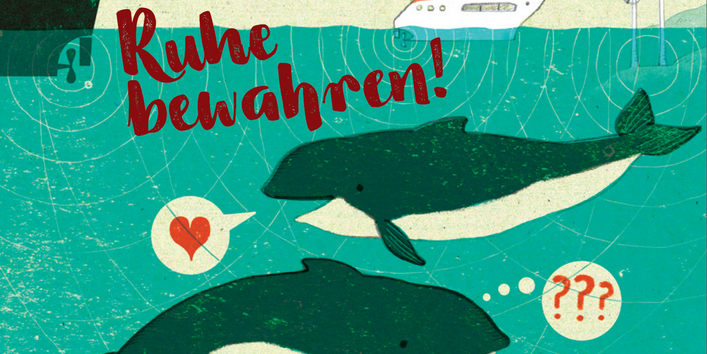The problem:
Underwater noise from human activity can disturb marine life and, in some cases, harm it by impairing hearing. Underwater noise can also disrupt the communication and orientation of marine life, which in the worst case can lead to stranding or population decline. Whales, dolphins and seals are particularly affected, but fish and marine invertebrates also suffer from noise pollution. For this reason, localised noise pollution is being determined in marine areas around the world and the associated effects on wildlife are being investigated.
How does noise get into the North Sea and Baltic Sea?
Natural sounds generated by wind and waves form the background noise in the sea. Manmade noise, especially from shipping and sonar, disturbs the ocean’s natural soundscape. The construction of offshore wind turbines has compounded the problem.
What can be done?
The issue of noise pollution has been taking prominence and reliable monitoring methods are being tested. Adjustments in shipping practices such as speed restrictions, relocation of shipping routes or temporally and spatially defined routes for ships are some of the measures that can be taken to ease the problem. Noise pollution can also be avoided or reduced by using suitable technology. Quieter ship engines and propellers are currently being developed and tested. In the field of offshore construction, new methods to reduce impulsive pile-driving noise are being deployed. In recreational boating, the constant use of echo sounders should be scrutinised and the possibility of selective use should be examined. In addition, good maintenance of boat propellers is crucial for reducing noise, as poorly maintained propellers are loud. More information (in German only) can be found at maritime shipping and underwater noise.
